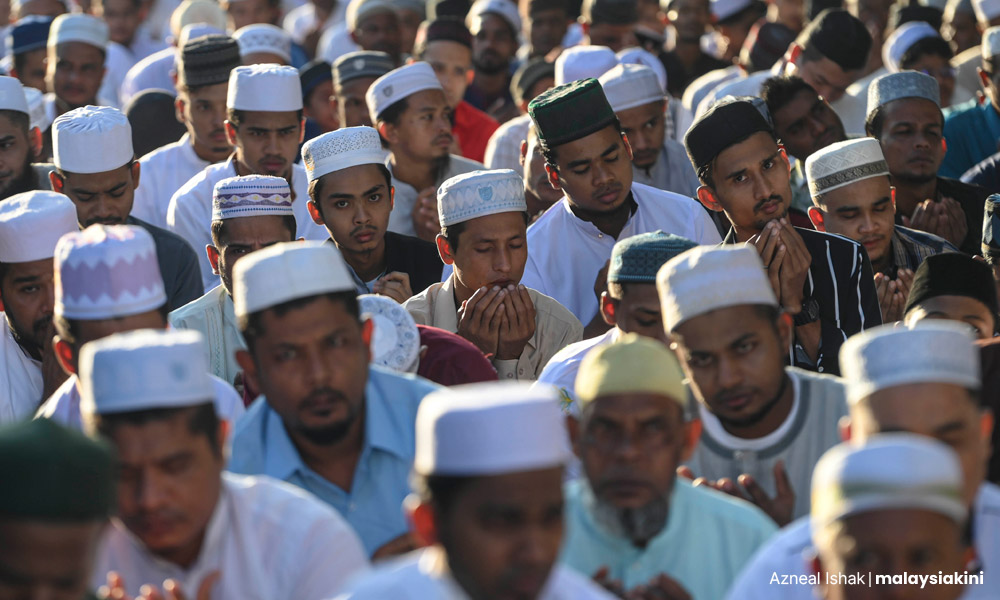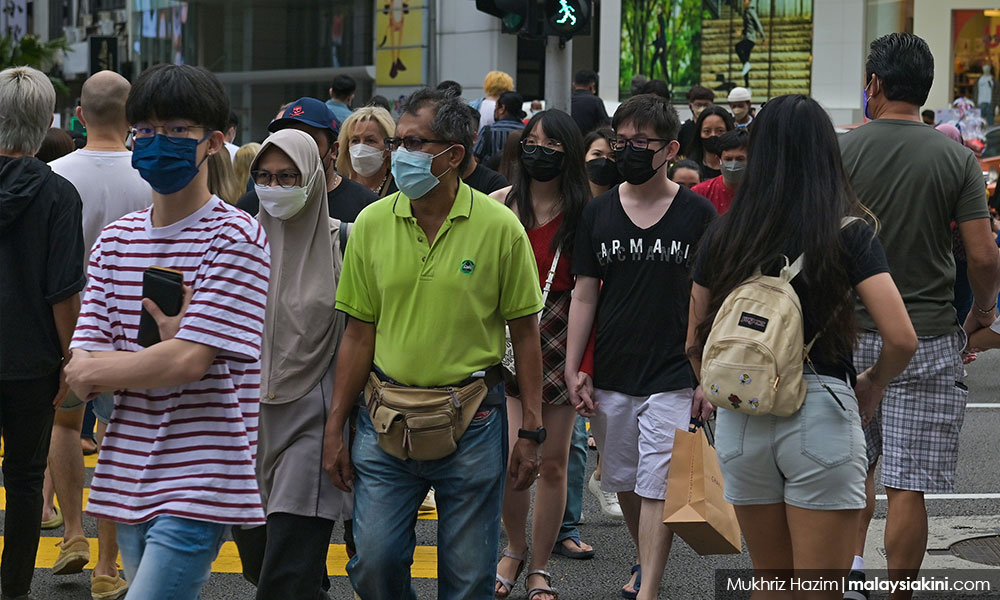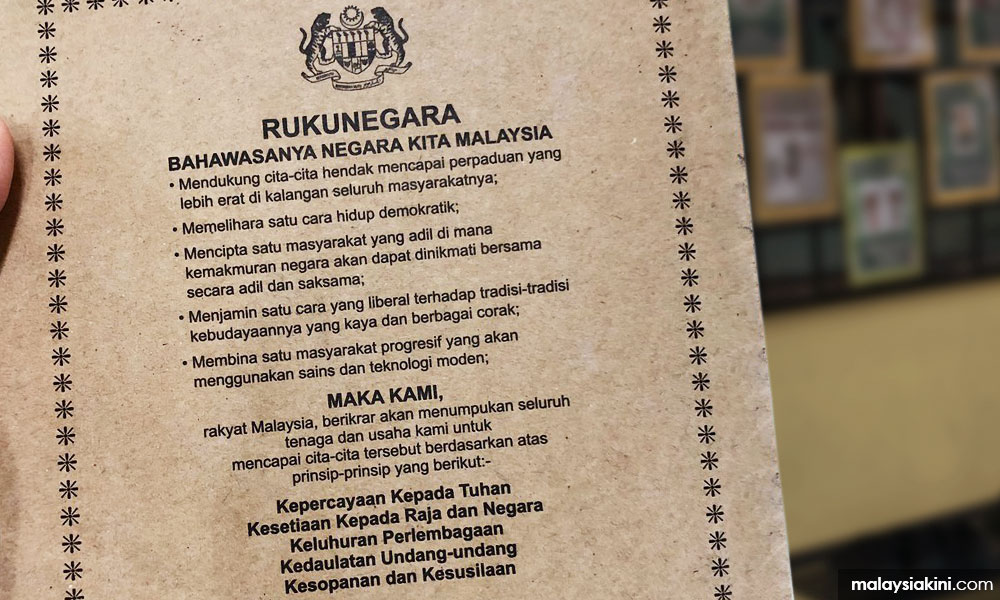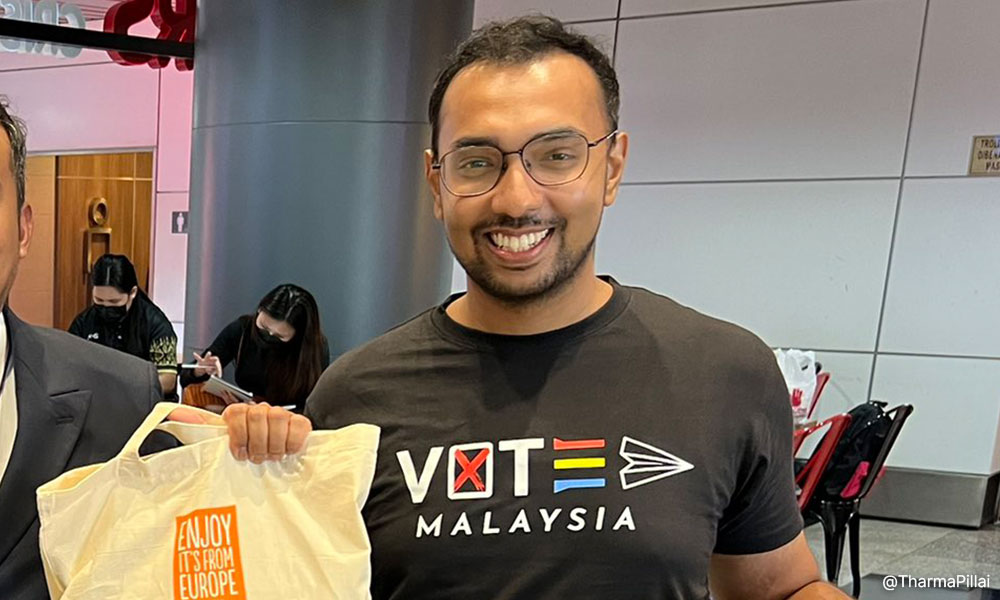Recent laments from stateless individuals have prompted me to ponder: what precisely does it mean to be a Malaysian citizen?
The interpretation of what being a Malaysian entails can vary greatly from person to person.
So, I conducted a series of informal interviews with several individuals to gather a range of perspectives.
For some, their ethnic background serves as the cornerstone of their identity as Malaysians; this was particularly the case among those from the Malay community.
The historical legacy of Malay civilisation, which gave rise to the ancient Malay kingdoms in the Malay peninsula, coupled with local customs and traditions, instils in some Malay communities the conviction that being Malay equates to being firmly rooted as a Malaysian citizen within the bounds of the Malay peninsula.
Meanwhile, the ethnic Chinese and Indian communities perceive themselves differently from their counterparts in other parts of the world. Their upbringing or birth in Malaysia has endowed them with a distinct culture, language and way of life, fostering a profound sense of belonging and identity with Malaysia as their home.

The Malay culture is intrinsically intertwined with Islam, with many facets of Malay customs, traditions and lifestyle being influenced by the Islamic faith. So some individuals define their citizenship in terms of their ethnicity and the country’s ‘official religion’ - namely, Malay Muslim.
Others, however, adopt a more inclusive perspective: they place greater emphasis on Islam as the official religion, which transcends the confines of ethnic identity. This broader outlook reflects the belief that Islam, by its very nature, transcends racial distinctions, thus shaping their own identity as Malaysian citizens.
“If you want to serve the people, you must serve the religion and the country. If you want to serve the religion, you must serve the people and the country - not just the Malay race because Islam doesn’t care about skin colour.”
For the Peranakan community, the preservation of their cultural heritage holds paramount importance in defining their Malaysian-ness. Figures such as Sherman Ong, who chronicles his cultural heritage through the lens of his camera, epitomise this sentiment.
Valuing unity amid diversity
But there are many others who subscribe to definitions that transcend ethnic and religious boundaries.
Rights play a pivotal role in defining Malaysian citizenship, as certain entitlements are bestowed upon citizens - such as access to education, healthcare, the right to vote and freedom of speech.
According to one interviewee, mere proficiency in the local language and adherence to cultural norms are insufficient. People require rights within the country, affirming their status as Malaysians.
Yet, as it stands, securing these basic rights requires citizenship. This reality is exemplified by the plight of stateless children who are denied fundamental rights due to their lack of citizenship, despite being born and raised in Malaysia.
A respondent from Sarawak highlighted the importance of diversity and the responsibility to preserve this diversity as integral to the meaning and definition of Malaysian citizenship.
“To be Malaysian means to be bound by a sense of belonging to one’s ethnic culture, while valuing unity amid diversity.
“This diversity represents both a strength and a challenge.
“Being a Malaysian entails not merely citizenship, but also responsibilities and rights.”
An awareness and acceptance of all ethnicities and religions is not an insurmountable challenge for us in Malaysia.

Another respondent shared: “My Indian friend purchased halal chicken to include me in his Deepavali celebration.”
“My Chinese friend specifically sought out halal products to accommodate my dietary preferences.
“And whenever I offer my prayers, silence descends upon the room - even though I harbour no objections to their soft conversation.
“All these interactions occur seamlessly and feel entirely natural to us; it’s a matter of mutual respect ingrained in the fabric of Malaysian society.”
A sense of belonging is another integral facet of being Malaysian. As one respondent remarked, it is easy to admire other nations such as Japan.
“I recently returned from Japan and was captivated by every aspect of it.
“Yet, regardless of Japan’s allure, I yearned to return to Malaysia. My affection for Malaysia stems from having been nurtured within its way of life.”
Serving one’s country
The determination to serve one’s country also holds sway as a defining factor for some individuals.
Certain interviewees placed great emphasis on the concept of service. According to Haziq, “Being a Malaysian citizen entails a commitment to serve, irrespective of the form it takes.”
“Whether we consider it from the perspective of Islam - representing a global identity - or through the lens of Malay ethnicity, does the inclusion of other ethnicities detract from the essence of being Malaysian?
“Ultimately, it boils down to a profound love for one’s country.”
For others, embracing and embodying the principles of the Rukun Negara in their daily lives epitomise the essence of being Malaysian. These principles should be ingrained within the heart of every Malaysian.
However, I feel that, apart from the recitations during our schooling days, there’s been a noticeable decline in the emphasis placed on the importance of the Rukun Negara. Perhaps it is worth asking those around us if they still recall its tenets.

All of us in Malaysia have our own opinions, values and definitions, shaping what it means to be Malaysian. This interpretation may evolve over time and circumstance.
What remains paramount is the love and the aspiration to contribute positively to the nation, in whatever capacity possible.
Allow me to highlight the contributions of some youths who have made remarkable strides for our nation, yet their endeavours often go unnoticed.
Suraya Abdul Rashid has pioneered the development of products using nanotechnology to expedite plant growth.
Recognising the challenges faced by residents of flats or confined spaces in obtaining viable yields, she devised innovative solutions to assist them.
Kai Song Er and Vicky Tan established the social enterprise GuruLab. Leveraging data analytics technology, they enhance and pinpoint areas for improvement in English language learning outcomes among Malaysian students.
This technology not only benefits teachers and students but also earned them a grant of RM1 million from a telecoms company.

Tharma Pillai is one of the founding members of Undi18, an NGO that advocated for an amendment to the Federal Constitution to lower the voting age from 21 to 18.
I believe each of these individuals embodies a distinct interpretation of what it means to be Malaysian. Yet, their commitment to serving the nation remains unwavering. - Mkini
SAFIYUDDIN SABRI is a political science student doing an internship with Aliran. The above was first published on Aliran.
The views expressed here are those of the author/contributor and do not necessarily represent the views of MMKtT.




No comments:
Post a Comment
Note: Only a member of this blog may post a comment.